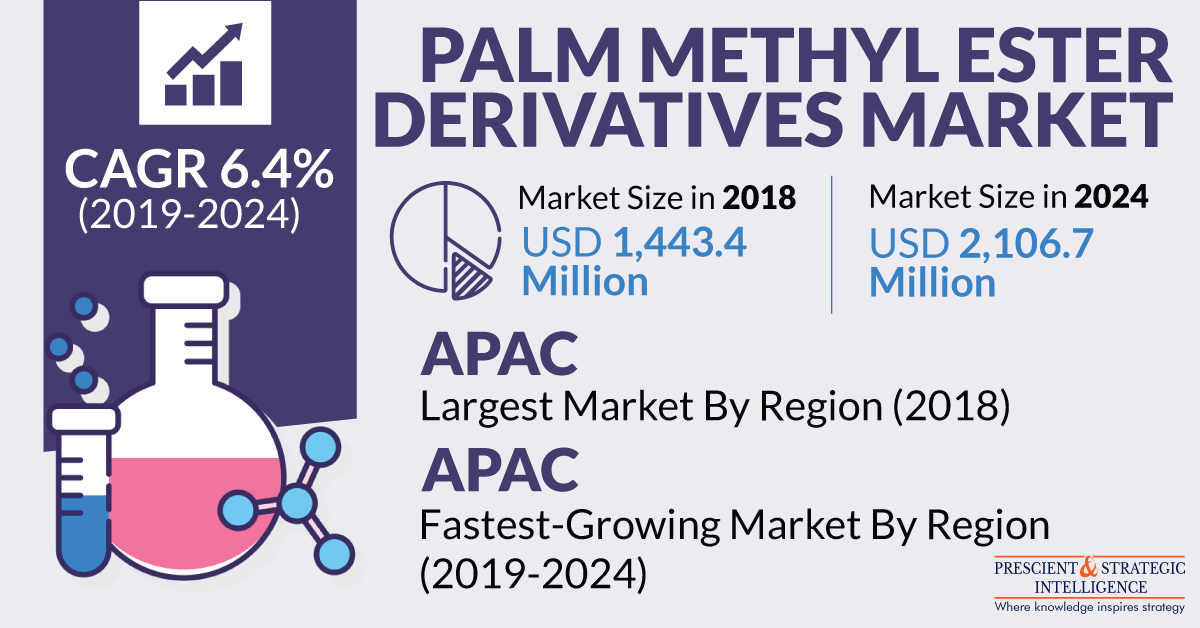Despite the rising debate about their sustainability, vegetable oil biofuels are being utilized more and more as a substitute for fossil fuels. One of the vegetable oils used in the transesterification process that turns palm oil into biodiesel is methanol.
Without requiring any modifications, palm oil biodiesel or palm methyl ester may be used in diesel engines. It can also be combined with regular diesel to create PME-diesel blend fuels in a variety of ratios.
Consumption of biofuels that are less carbon-intensive than conventional diesel is rising as the impact of climate change intensifies. Vegetable seeds from oil-bearing crops, in this instance oil palm fruit, are used to produce the various types of biodiesels.
Palm oil is currently the least expensive vegetable oil used in biodiesel since it produces the most oil for every hectare of crop. It may provide significant oil yields for a very long time because it is a perennial with a lifetime of about 25 years.
The global use of beauty products is growing. Because they are used as oils and emulsifiers in a variety of beauty products, palm methyl ester derivatives have a long history in the personal care and cosmetics industries. Derivatives of palm methyl ester are widely used in the personal care and cosmetics industries as lubricants and emulsifiers.
Due to government mandates to employ bio-based products, several significant businesses in the chemical and cosmetics sectors have shifted toward using palm-based products. These elements are expected to motivate companies to create a variety of oleochemicals from palm methyl ester derivatives.
Over the past several years, there has been an increase in demand for biodiesel on a global scale. The non-toxic nature of biodiesel compared to its competitors and the fact that it is a biodegradable fuel are both factors in the rising demand for it.
Furthermore, the growing demand for biodiesel will fuel the rise of palm methyl ester derivatives in the upcoming years. Palm methyl ester, which is generated from palm oil, is utilized as a feedstock for biodiesel.
Because of things like manufacturing costs and fuel economy, the financial prospects for this oil are currently not very attractive. The energy generated by engines utilizing palm oil, however, is anticipated to become price viable with almost all other kinds of energy if research to lower manufacturing costs is intensified. It is anticipated that this discovery would lessen the world's reliance on oil for the industrial and transportation sectors.
The use of renewable energy sources, such as biodiesel, which effectively generates energy and has no impact on the environment, has quickly replaced conventional energy sources. In contrast to diesel fuels, FAMEs of vegetable oils, including palm oil and rapeseed oil, may effectively provide energy and have few negative effects on the environment. These FAMEs are used to make biodiesel, a non-polluting fuel.
Recent years have seen a study on the efficient energy generation and minimal environmental effect of biodiesel made from palm oil derivatives. Furthermore, due to the ease of obtaining feedstock, low cost of the finished product, and good performance characteristics of palm biodiesels and blends, commercial use of palm oil in biodiesel is feasible.


